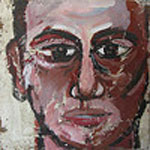Since the outbreak of May 7 armed clashes in Lebanon, and before, during the war between Fateh al Islam and the Lebanese army in Naher al Bared camp in the North, the salafists are gaining more and more affluence. This is a report from the Daily Star that highlights the relation between the salafist mvts and mainly the pro-gov bloc and some Arab regimes like Saudi Arabia.
In the center of one of Tripoli's squares in north Lebanon, a large statue has been erected inscribed with the word "Allah" in Arabesque calligraphy. The statue reflects the city's reality, especially in light of the recent rise in Salafism, a radical form of Islam. In Abi Samra on one of Tripoli's hills, long-bearded men, dressed in white dishdashas - a style unusual for Lebanon - walk along whitewashed buildings, attesting to the growing grip Islamists have on the city.
"Salafism was founded in the 1960s in Lebanon by Sheikh Salem al-Chahal," says Sheikh Bilal Chaaban, head of the Tawhid movement (another radical Islamist faction, separate from Salafism). After the death of its founder, Salafism branched into various factions, one of which is headed by the founder's son, Dai Islam al-Chahal.
"During his lifetime, Sheikh Said Chaaban, founder of Tawhid, was supported by other Salafists. After his death, however, both movements drifted apart, with the Tawhid still clinging to the dream of establishing a Muslim state in Northern Lebanon," says Future Movement MP Mustafa Allouch.
Other small Salafist schools also emerged in Tripoli, such as the Siraj Mounir Boukhari and Safwan Zoabi movements.
"Salafists believe in a strict interpretation of the Koran and in practicing Islam as it was at the time of the prophet Mohamad and his disciples," says Sheikh Omar Bakri, a radical cleric who was expelled from Britain in 2005 for his alleged links with Al-Qaeda. According to the cleric, Salafism is essentially built on three pillars: belief in one god, the "daawa" or the missionary task, and jihad.
"Most Salafists, however, only apply the first two principles of true Islam without fulfilling the third, the jihad. True Salafism thus does not exist in Lebanon," he says.
Lebanese Salafism is of a doctrinal and missionary nature that has been allowed to grow because of the country's complex and diverse religious undercurrent (Lebanon, a country of 4 million, officially recognizes 18 religious communities). In Tripoli, Salafist factions rely on a network of mosques, NGOs and schools, and receive financing from various Arab countries, such as Saudi Arabia, Qatar and Kuwait.
The armed bodyguards surrounding the headquarters of some Islamic and Salafist organizations, and the relative opulence of the homes of the clerics reflect the growing affluence and number of such extremists flowing into the city. "The allegiance of Salafist factions to the foreign powers that fund them has promoted divisions among their ranks, as they reflect the alliances or dissensions of their foreign allies," says Bakri.
The intricate political and social fabric within the various Salafist movements is deeply divided, as with the rest of Lebanon. Not only are Islamic factions in Tripoli manipulated by foreign powers, but they are also pawns in the hands of local politicians, who use them in their political games.
"By radicalizing people, political factions can guarantee a larger base of supporters in the upcoming 2009 parliamentary elections. Salafists, like many others, are lured by false Messiahs," says Sheikh Chaaban, referring to the role of politicians in the ongoing violent conflict in Tripoli between Sunnis (including radical Islamists) and a pro-Syrian minority.
Different sources interviewed by IPS report that most Salafists seem to follow the pro-government bloc, while other radical Sunni factions, such as Tawhid, are sponsored by either Syria or Iran, and hence, support the opposition.
"Most Salafists are allied to the Saudis and, thus, aligned with American Middle East policy. They maintain excellent relations with the government and the Hariri family," says Bakri. The Hariris are a powerful Lebanese political clan with strong ties to Saudi Arabia. Saad Hariri, son of slain Prime Minister Rafik Hariri, heads the majority parliamentary coalition in Lebanon...click here to continue reading z report
















